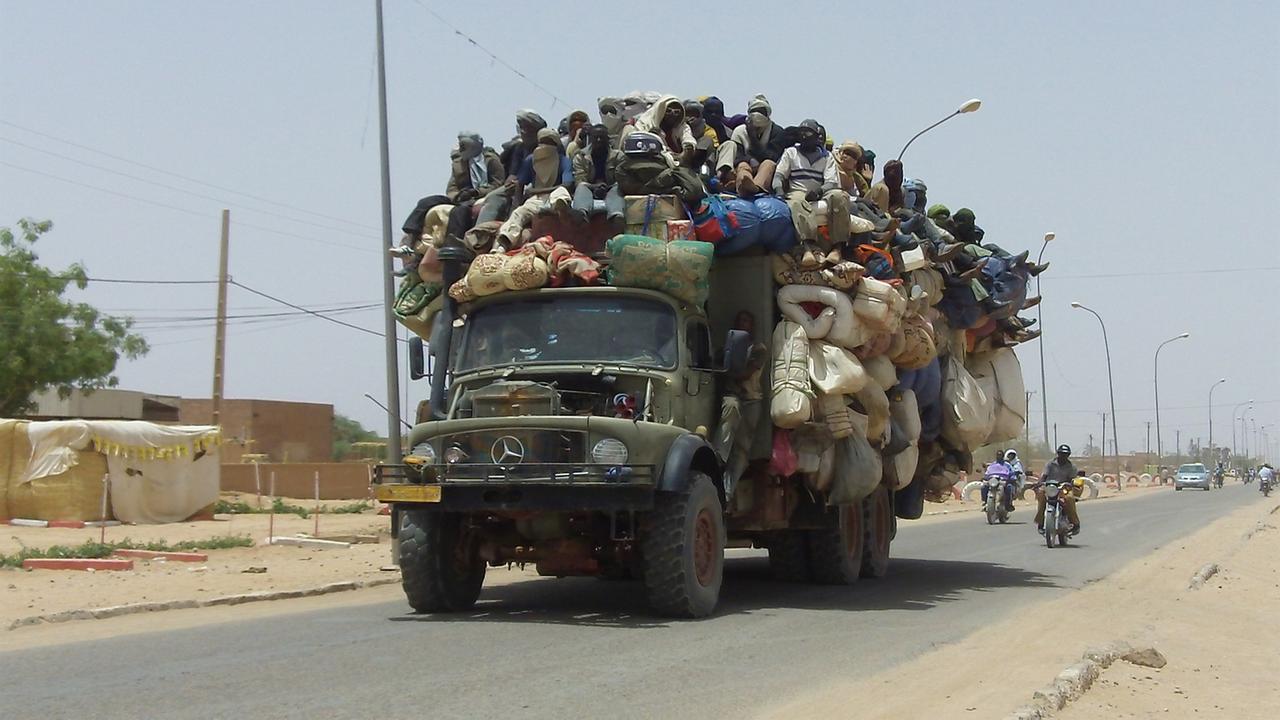After the military coup in Niger, the country canceled agreements with the EU – including one that declared smuggling illegal. Because of the UN peacekeepers’ withdrawal from Mali, Europe fears that more refugees will now set out.
For Sambo Cissé it is literally a journey into the unknown: the young man has fled the crisis state of Mali. But where the road ahead of him will take him is completely unclear: “I don’t know where I should orient myself, maybe to Algeria or Libya and then get to Europe.”
How, when and whether Cissé will even arrive in Europe – he doesn’t know. The man only has a vague idea of the dangers that lurk on this long journey to Europe. He only knows one thing: he had to leave home, had to get out of Mali. “Because I have a wife and children, but I don’t have a job. I’m forced to go far away to look for work to help the family,” said Cissé.
Long way to the Mediterranean
For now, Cissé is in the city of Agadez, Niger. The “gate to the desert”, as it is also called, close to the border with Mali. It is one of the most important places on the refugee route north. Behind the desert, if you can make it through, is the Mediterranean. But there is still a long way to go to get there.
Agadez has, if you will, come back to life. Since the end of November, the military government in Niger canceled a deal with the EU and annulled a law that criminalized the smuggling of migrants in Niger.
With effects that are not yet foreseeable: “You cannot say that the numbers increased immediately. You cannot yet determine this directly because it was not that long ago that the law was abolished,” explains Amadou Oumarou, who calls himself a “service provider” in the refugee industry.
View over Agadez, one of the most important places on the refugee route to the north. (Archive)
The number of displaced people could increase
In any case, people in Europe are “concerned” about the removal of the law. In general, everything in the entire region suggests that the number of displaced people will continue to rise: in the north of Mali, where the UN peacekeepers have just completed their peacekeeping mission, terrorist groups, Tuareg separatists and the Malian army are once again clashing more violently than in previous years .
“There will be more refugees from Mali. Now Gao will also become more uncertain about where the Bundeswehr is gone. More people will go to Niger,” believes Ulf Laessing, head of the CDU-affiliated Konrad Adenauer Foundation in Mali’s capital Bamako . Gao is the region from which the Bundeswehr has just withdrawn.
More threatening situation in Niger
But the situation in Niger itself is also becoming increasingly threatening: the terrorist group “Islamic State” quadrupled the number of its attacks in the month after the military coup at the end of July, according to the aid organization “International Rescue Committee” (IRC). According to the IRC, 700,000 people in Niger are already on the run and 4.5 million are dependent on humanitarian aid.
From the perspective of sociologist and migration expert Olaf Bernau, this does not mean that they are all now making their way to Europe. Bernau therefore does not expect an explosive increase in migration numbers despite the change in the law: “That will not change because ultimately the people in Niger are far too poor to be able to pay for migration to Europe. That is also the reason why so few have left so far .”
Author Bernau believes that scenarios that Europe is facing mass migration from Africa are exaggerated: he calculates that more asylum seekers will arrive in Europe from Venezuela alone in 2022 than from the African countries combined, he calculates. Figures show that most people migrate to the continent.
Travel without choice
In Agadez, Nigeria, a city that thrives on the migrant business, the abolition of the anti-smuggling law is being celebrated. “It will boost the economy in the region,” says Oumarou. It would also make the journey safer for migrants because they would not have to look for dark paths off the main routes.
But it is unlikely that Cissé’s trip, who wants to go to Europe, will be a safe one. From his point of view, the Malian doesn’t have a choice. He doesn’t want to disappoint his wife and children who are waiting at home.
Kai Küstner, ARD Berlin, currently Rabat, tagesschau, December 18, 2023 9:58 a.m




